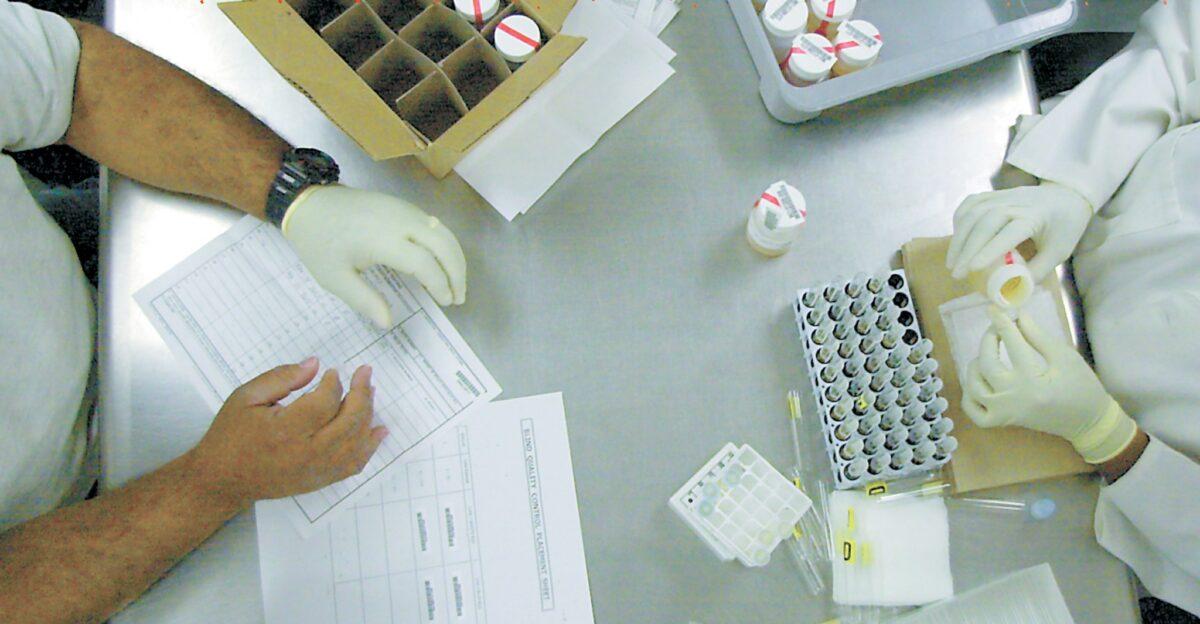Bar complaint filed against former MA Assistant Attorneys General in lab scandal
Recently, a Massachusetts judge took two former prosecutors to task for attempting to cover-up the extent of a massive lab scandal that called into question thousands of drug convictions in the state. Today, a lawyer from the Innocence Project and a Northeastern Law Professor took the rare step of filing bar complaints against those lawyers — Kris Foster and Anne Kaczmarek — previously […]

Recently, a Massachusetts judge took two former prosecutors to task for attempting to cover-up the extent of a massive lab scandal that called into question thousands of drug convictions in the state.
Today, a lawyer from the Innocence Project and a Northeastern Law Professor took the rare step of filing bar complaints against those lawyers — Kris Foster and Anne Kaczmarek — previously from the Massachusetts Attorney General’s office. They have asked the State Bar to conduct a meaningful investigation into the breadth of the prosecutors’ misconduct, and to sanction them accordingly.
The trouble began in 2013, when law enforcement discovered that Amherst lab chemist Sonja Farak had used drugs daily while at work — drugs she stole from the lab. According to pleadings, she also “mishandled, contaminated, or fraudulently reported” results in lab paperwork. She pleaded guilty in 2014 to ten criminal counts, including illegal possession, tampering, and theft of narcotics from the lab.
At the time, defense attorneys believed that Farak’s misconduct only dated back to July of 2012 — about four months before her arrest.
That was false. Farak’s malfeasance dated back eight years and affected upwards of 8,000 cases. Foster and Kaczmarek, however, fought to keep the defense lawyers from uncovering this fact. Kaczmarek knew Farak’s misconduct began earlier, but decided not to turn over that exculpatory material to defense lawyers. And although the extent of Farak’s misconduct was apparent in police files, Foster didn’t review them. She did, however,repeatedly tell the court she had done so. Moreover, encouraged by Kaczmarek, she represented that nothing in those files was relevant to any of the defendants’ claims. This false statement meant defense lawyers remained unaware that their clients might have valid claims for new trials. Foster also accused the defense lawyers of engaging in a “fishing expedition.”
It was not until a year later that defense counsel learned that their clients had meritorious claims and should have their drug convictions vacated.
In June of this year, Superior Court Judge Carey lambasted the prosecutors in a written opinion. As described in a previous blog post, Carey ruled that the AG’s office engaged in “intentional, repeated, prolonged and deceptive withholding of evidence from defendants,” behavior that was “egregious and harmful to the administration of justice.” And because the two misrepresented facts to the court, Judge Carey accused them of committing a “fraud upon the Court.” He dismissed six of the indictments before him with prejudice — meaning the Commonwealth could not proceed with prosecutions in those cases.
But little else has happened to the prosecutors. Foster is currently the General Counsel for the Alcoholic Beverages Control Commission, where she has considerable responsibility. Kaczmarek is the Assistant Clerk Magistrate for the Suffolk Superior Criminal Clerk’s Office.
Nina Morrison from the Innocence Project and Daniel Medwed from Northeastern Law School hope that will change. They have asked the state bar to investigate their misconduct, alleging that they violated their duty of candor towards the court, fairness towards the opposing party, their obligation to disclose exculpatory evidence as prosecutors, and their obligation to be truthful in statements to others. The two prosecutors “denied justice and due process to thousands of potentially impacts defendants,” Morrison and Medwed allege, “many of whom remain[] incarcerated.”
Morrison and Medwed point out that prosecutors are rarely held responsible for their inappropriate behavior, even where, as here, a court specifically makes a misconduct finding: “[T]he Massachusetts Board of Bar Overseers has a chance to do what most other disciplinary agencies have largely failed to do: hold a government lawyer accountable for egregious misconduct.”
